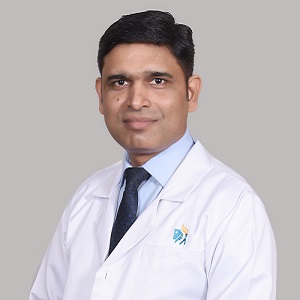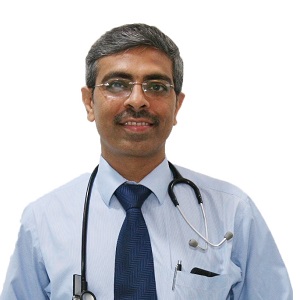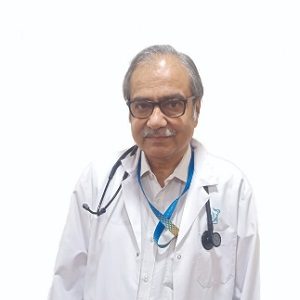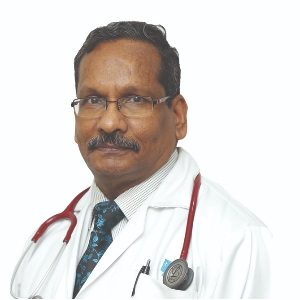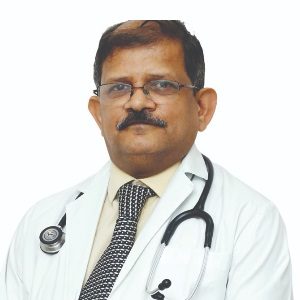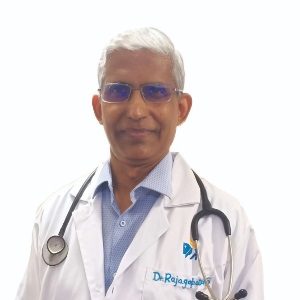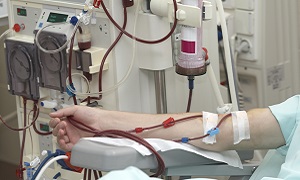Best Doctors in India for Polycystic Kidney Disease Treatment
- Nephrologist, New Delhi, India
- Over 22 years’ experience
Profile Highlights:
- Dr. Jayant Kumar Hota is a Nephrologist/Renal Specialist based in Sarita Vihar, Delhi having an experience with 22 years in this field.
- Dr. Jayant Kumar Hota practices at Indraprastha Apollo Hospitals, Delhi. He completed his MBBS from Utkal University in 1999, MD – Medicine from Banaras Hindu University in 2005, and DM – Nephrology from Rajasthan University of Health Science, Jaipur in 2009.
- He is a member of Indian Society of Nephrology (ISN). Some of the services provided by the doctor include Kidney Disease Treatment, Hemodiafiltration (HDF), Kidney Dialysis, Laparoscopic Nephrectomy, Ureteroscopy (URS), etc.
- Nephrologist, New Delhi, India
- Over 20 years’ experience
Profile Highlights:
- Dr. Gaurav Sagar is currently working as a consultant nephrologist at Apollo Indraprastha Hospital, New Delhi. He has over ten years of experience in renal medicine with a special interest in vascular access, kidney transplant, and critical care nephrology.
- Dr. Sagar has been a pioneer in practicing and promoting Interventional Nephrology in North India and was part of the team which conducted the first ABO-incompatible transplant in North India.
- Nephrologist, Chennai, India
- Over 43 years’ experience
Profile Highlights:
- Dr. Prakash K C is one of the senior Nephrologists from Tamil Nadu, with over 43 years of experience managing renal disorders.
- He provides consultation and a wide range of medical services like Ureteroscopy (URS), Kidney Transplant, Hemodialysis, etc. His team ensures a friendly environment for patients.
- Dr. Prakash is involved in many pieces of research and got his work published in periodicals and textbooks.
- Nephrologist, Chennai, India
- Over 29 years’ experience
Profile Highlights:
- Dr. B Subba Rao is one of the best Nephrologists in Tamil Nadu, with over 29 years of experience.
- Dr. Rao offers consultation and various services like Nephrolithotripsy, Hemodialysis, Hemodiafiltration (HDF), Percutaneous Nephrolithotripsy, CKD, Kidney Stone Treatment, Kidney Failure Treatment, etc.
- Dr. Subba Rao has been awarded the Vocational Excellence Award for his contributions to the field
- Nephrologist, Chennai, India
- Over 23 years’ experience
Profile Highlights:
- Dr. Rajeev Annigeri is a well-known Nephrologist from South India with 23 years of experience in the field of renal disorders treatment.
- He went under special training in Peritoneal Dialysis from the University of Missouri, USA.
- Dr. Annigeri ensures a fully supportive environment for the patients. The doctor provides many medical services like Adrenalectomy, Kidney Transplant, Hemodialysis, Kidney Surgery, Hemodialysis, etc.
- Nephrologist, Chennai, India
- Over 29 years’ experience
Profile Highlights:
- Dr. S Rajagopalan Seshadri is one of the best Nephrologists from Tamil Nadu, with over 29 years of experience.
- Dr. S Rajagopalan provides a wide range of medical services as a specialized Nephrologist/Renal Specialist.
- He is known for excellent patient care. Patients also visit Dr. Rajagopalan for other services like Proteinuria, Kidney Transplant, Hemodialysis, Nephrectomy, Percutaneous Nephrolithotripsy, CKD, Kidney Failure, etc.
- Nephrologist, Gurugram, India
- Over 20 years’ experience
Profile Highlights:
- Dr. Suman Lata Nayak is one of Delhi’s most prominent Transplant physicians and was the founder of the Nephrology Department at the Institute of Liver and Biliary Sciences.
- Throughout her career, she has been actively involved in clinical research. Dr. Suman Lata Nayak’s research in the field of kidney transplantation, TB, and liver disease in patients, has made a significant impact on improving protocols in India.
Best Hospitals in India for Polycystic Kidney Disease Treatment
W Pratiksha Hospital, Gurgaon
- City: Gurugram, India
Hospital Highlights:
- W Pratiksha Hospital, Gurugram, is one of the best hospitals in the NCR region. It is also a top hospital in India for IVF. Since its inception, the hospital has performed over 5500 successful IVFs. The hospital also specializes in gynecology.
- With over 20 years of experience in providing quality healthcare, the hospital is known as one of the most trusted and valued health providers in India.
- Equipped with world-class medical facilities and advanced technology, the hospital’s doctors and clinicians also have a track record of delivering excellent results. The hospital is also known for focusing on preventive well-being as much as on curative treatment.
- The hospital has earned the trust of its patients, by providing the best available treatments at affordable costs.
Narayana Superspeciality Hospital, Gurugram
- City: Gurugram, India
Hospital Highlights:
- Situated near DLF Cyber City, Gurugram, Narayana Superspecialty Hospital is one of the top medical facilities in the Delhi NCR region, catering to the needs of the people. Known for its commitment to quality medical care and patient service, the hospital is a state-of-the-art facility with planned and well-equipped sections, which includes a spacious OPD area as well as comfortable patient rooms.
- It is the closest super-specialty hospital from Indira Gandhi International Airport towards Gurugram, and also the nearest super specialty hospital from DLF Cyber City. It is also close to major residential areas in Gurugram.
- It is part of the renowned Narayana Health Group. Established in 2000, by Dr. Devi Shetty, a renowned cardiac surgeon, it has grown to be one fo India’s leading healthcare groups.
Sir Ganga Ram Hospital, New Delhi
- City: New Delhi, India
Hospital Highlights:
- Sir Ganga Ram Hospital, New Delhi is known to provide the latest medical procedures with the latest technology in all of its units.
- The hospital has a team of reputed doctors, nurses, and healthcare professionals that ensure that patients receive quality care at affordable costs.
- Staffed with a team of highly qualified doctors, dedicated nurses, and paramedical and non-medical staff, the hospital aims to lead in healthcare delivery, medical education, training, and research.
- As per the vision of the founder, the hospital also provides free treatment to the economically weaker sections of society.
- Sir Ganga Ram Hospital also provides training to young doctors under the Diplomate in National Board(DNB) program. The DNB program at the hospital was started in 1984 and it is known for currently running the maximum number of DNB specialties in the country. It also has the distinction of having the first bone bank in India.
CK Birla Hospital, Gurugram
- City: Gurugram, India
Hospital Highlights:
- The CK Birla Hospital in Gurugram is a NABH-accredited multi-specialty hospital.
- The hospital strives to increase the quality of healthcare by focusing on UK NHS nurse and midwife training requirements. Policies and practices derived from the National Institute for Health and Treatment Excellence (NICE) recommendations in the United Kingdom ensuring that a strong focus on safety, high-quality clinical care, and sanitation is maintained.
- The hospital’s cutting-edge technology and facilities allow for real-time communication and seamless collaboration among caregivers, ensuring accuracy and the best possible results. Those with foreign experience and accreditations make up part of the hospital’s team of clinicians.
KIMS Hospital, Hyderabad
- City: Hyderabad, India
Hospital Highlights:
- KIMS Hospital (a brand name of Krishna Institute of Medical Sciences) is one of the largest and best multi-speciality hospitals in Hyderabad. The hospital provides various treatments to an enormous number of patients.
- The hospital has a capacity of more than 3000 beds. KIMS Hospitals offers different healthcare services in more than 25 specialities and super specialities.
- The hospital is equipped with modern medical equipment and technology. It has robotic equipment to provide minimal invasive techniques for patients.
- The hospital is aimed at providing world-class healthcare facilities and services at an affordable cost for patients.
- The various specialities and departments of the hospital include neurosciences, gastroenterology & hepatology, robotic science, reproductive sciences, dental science, oncological sciences, organ transplantation, heart and lung transplantation and mother and child care.
Fortis Hospital, Shalimar Bagh
- City: New Delhi, India
Hospital Highlights:
- Fortis Hospital in Shalimar Bagh is a multi-super specialty hospital that strives to provide world-class patient care by leaving no stone unturned.
- Fortis, Shalimar Bagh, with 262 beds and a 7.34-acre footprint, provides the best level of medical care through its team of doctors, nurses, technicians, and management professionals.
Reliance Hospital, Mumbai
- City: Mumbai, India
Hospital Highlights:
- Reliance Hospital is one of the best super-specialty care hospitals in Navi Mumbai.
- The main purpose of this hospital is to become a trustworthy place for the best health and hope for society. The hospital is well connected to the suburbs of Mumbai and Navi Mumbai.
- The hospital has various specialty departments, viz., Accident & Emergency, Anesthesiology, Dental Services, Dermatology, Diabetology, Dietetics Nutrition, Endocrinology, ENT, Gastroenterology, General Surgery, Gynaecology And Obstetrics, Hepato Pancreato Biliary Surgery, Infectious Disease, Internal Medicine, Interventional Radiology, Laboratory Medicine, Minimal Access Laparoscopic Surgery, Nephrology, Neurosciences, Opthalmology, Orthopaedics, Paediatrics, Pain Management Palliative Care, Physical Medicine Rehabilitation, Plastic And Reconstructive Surgery, Psychiatry, Pulmonary Medicine, Radiology, Rheumatology, Transplant, Urology Andrology, Vascular Surgery
Lilavati Hospital & Research Centre, Mumbai
- City: Mumbai, India
Hospital Highlights:
- Lilavati Hospital & Research Centre is India’s premier multi-speciality tertiary care hospital and has been recognised as a global medical excellence centre.
- Lilavati Hospital & Research Centre has built an unrivalled level of trust with its patients over the years, thanks to a solid foundation that comprises cutting-edge facilities, the best medical competence, research, education, and charity endeavours.
- The hospital is quite proud of the fact that it now serves patients from all kinds of backgrounds, not just from the United States but from all around the world.
- The hospital has a total of 323 beds, one of the largest Intensive Care Units (ICUs), 12 Operation Theatres with modern amenities, over 300 consultants, and almost 1,800 personnel.
Polycystic Kidney Disease
Symptoms
In many cases, people can live with PKD for years, without experience any signs and symptoms, which are associated with the disease. A cyst typically needs to grow half an inch or larger before you might be able to notice any symptom of the disease.
Some of the symptoms of this ailment include:
- Blood in the urine
- Frequent urination
- Pain or heaviness in the back
- Pain or tenderness in the abdomen
- Skin that bruises easily
- Fatigue
- Pale skin color
- Pain in the sides
- Urinary tract infection
- Kidney stones
- Joint pain
- Nail abnormalities
If you notice yourself or anyone close to you, develop any signs or symptoms of polycystic kidney disease, then it is best to see your doctor as soon as possible.
Types & Causes
Polycystic kidney disease is generally inherited. Although, in a few cases, it may develop in people having other serious kidney problems. The three main types of PKD include:
Autosomal Dominant PKD (ADPKD)- Autosomal dominant PKD, which is also termed adult PKD, accounts for around 90 percent of the cases. People having a parent with PKD has a 50 percent chance of developing this condition.
Symptoms generally occur later in life, between the ages of 30 and 40, though few people can begin to experience symptoms in childhood as well.
Autosomal Recessive PKD (ARPKD)- Autosomal Recessive PKD is much less common as compared to ADPKD. It is also inherited, but to develop ARPKD, both parents must carry the gene for the disease.
Carriers of ARPKD won’t show any symptoms if they have only one gene. However, they will have ARPKD if they inherit two genes from each parent. Four types of ARPKD exist, which include:
- Prenatal form, which is present at birth.
- Neonatal form can occur within the first month after birth.
- Infantile form can occur when a child is 3 to 12 months old.
- Juvenile form can occur after a child is 1 year old.
Acquired cystic kidney disease- Acquired cystic kidney disease (ACKD) is not inherited and it generally occurs at a later stage in life.
This condition is generally seen in people who are already having other kidney problems. It is more common among people having kidney failure and people who are on dialysis.
Diagnosis
Since ADPKD and ARPKD are inherited, the doctor will first need to review your family history. They might initially need to order a complete blood count in order to look for anemia or any other signs of infections.
To diagnose all three types of PKD, your doctor can use imaging tests to look for cysts of the kidney, liver, and other organs. Imaging tests that are used to diagnose PKD include:
Abdominal Ultrasound
Abdominal CT scan
Abdominal MRI scan
Intravenous Pyelogram
Treatment
The severity of this condition can vary from person to person, even among the members of the same family. Generally, treating polycystic kidney diseases involves treating the signs, symptoms, and complications in the early stages.
Kidney Cyst Growth
Pain
Declining Kidney Function
High blood pressure
Blood in the urine
Bladder or kidney infections
Kidney failure
Aneurysms
If you are suffering from polycystic kidney disease and a family history of ruptured brain aneurysms, then your doctor might recommend regular screening for intracranial aneurysms.
If an aneurysm is discovered, then surgical clipping of the aneurysm to reduce the risk of bleeding may be an option, depending on its size. There are non-surgical treatment options as well, such as controlling high blood pressure, and high blood cholesterol. Quitting smoking is also quite beneficial.
Complications
Several complications are associated with polycystic kidney disease. They include the following:
- High blood pressure- A common complication of polycystic kidney disease is elevated blood pressure. If high blood pressure is untreated, it can cause further damage to your kidneys and may increase the risk of heart disease or stroke.
- Chronic pain- Pain is another common symptom among people with polycystic kidney disease. It generally occurs in your side or back. It is also possible that the pain is associated with a urinary tract infection, a kidney stone, or a malignancy.
- Loss of kidney function- A progressive loss of kidney function is known to be one of the most serious complications of polycystic kidney disease. Nearly half of the patients suffering from PKD have kidney failure by the age of 60. This happens because PKD can interfere with your kidneys’ ability to keep wastes from building to toxic levels. As the disease worsens, end-stage kidney disease may occur, which can require you to undergo dialysis or a transplant.
- Growth of cysts in the liver- If you are having polycystic kidney disease, then you are more likely to develop liver cysts, as your age increases. While both men and women develop cysts, cysts in women are often larger. Female hormones and multiple pregnancies can also contribute to liver cysts.
- Heart valve abnormalities- Around 25 percent of adults with polycystic kidney disease develop mitral valve prolapse. When this happens, the heart valve no longer closes properly, and this can allow blood to leak backward.
- Development of an aneurysm in the brain- A balloon-like bulge in a blood vessel in your brain can cause bleeding i.e. hemorrhage if it ruptures. People suffering from polycystic kidney disease usually have a higher risk of aneurysms. People with a family history of aneurysms are at the highest risk. You can talk to your doctor to ask if screening is needed in your case.
- Pregnancy complications- Most women having polycystic kidney disease are generally able to have a successful pregnancy. However, in some cases, women can develop preeclampsia, a life-threatening disorder. Those having high blood pressure or a decline in kidney function are more likely to develop it.
- Colon problems- Weaknesses and pouches or sacs in the wall of the colon i.e. diverticulosis can also develop in people who are having polycystic kidney disease.
Prevention
One of the best ways to prevent some of the complications of PKD is to keep your kidneys as healthy as you can.
Some of the tips to keep your blood pressure in check include eating a diet low in salt, and containing plenty of fruits and vegetables, exercising regularly and maintaining a healthy weight, quitting smoking, and reducing alcohol consumption.

